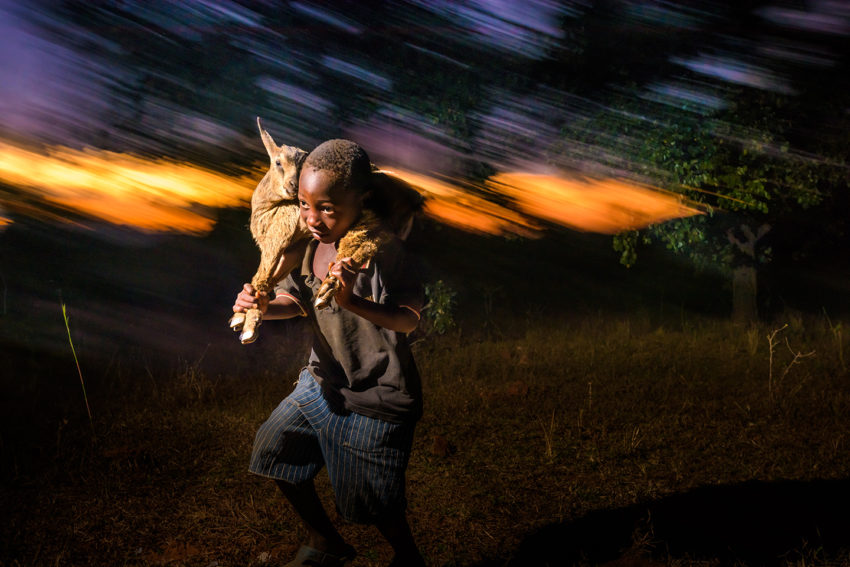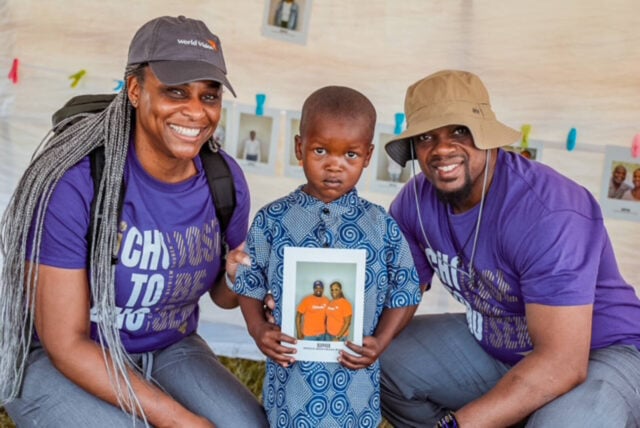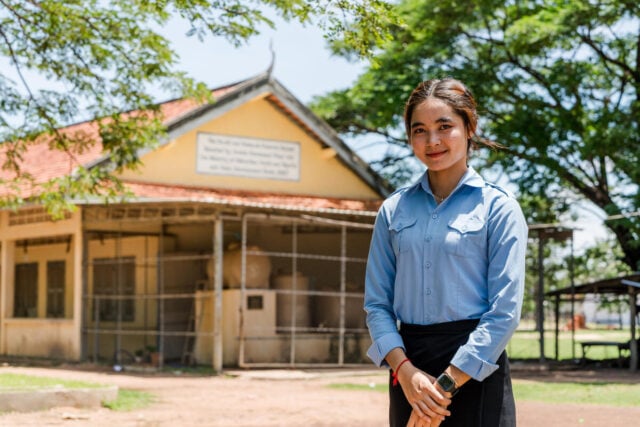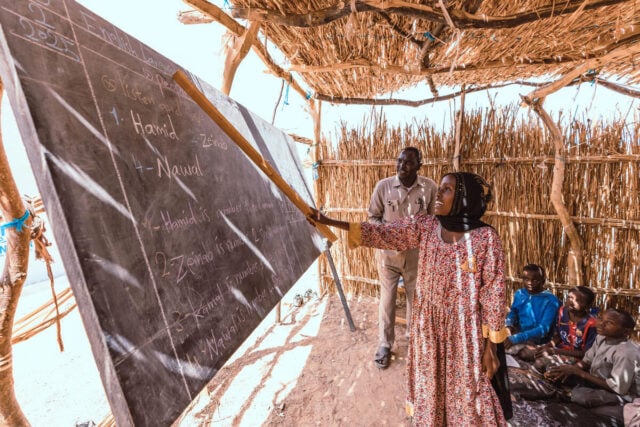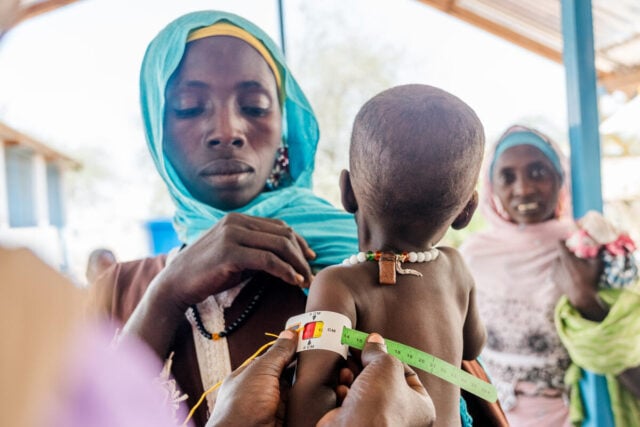A goat from the Gift Catalog may seem like a simple gift. But around the world, the gift of animals is creating a domino effect of generosity to help families living in poverty.
Maybe it was on Black Friday, when they were still feeling stuffed with Thanksgiving goodness. Instead of braving the bargain-hunting crowds, a family cozied up on their couch and shopped through World Vision’s Gift Catalog. They settled on a goat and placed an order.
On Christmas, their gift recipient opened a card and read, “A gift has been given in your honor.” And as the giving glow of the holidays drew to a close, that could have been the end of the story.
But not really. With a Gift Catalog gift, the story has just begun.
Like a growing light, a single act of generosity can cascade into more gifts that enable families to climb out of poverty and children to walk into a brighter future.
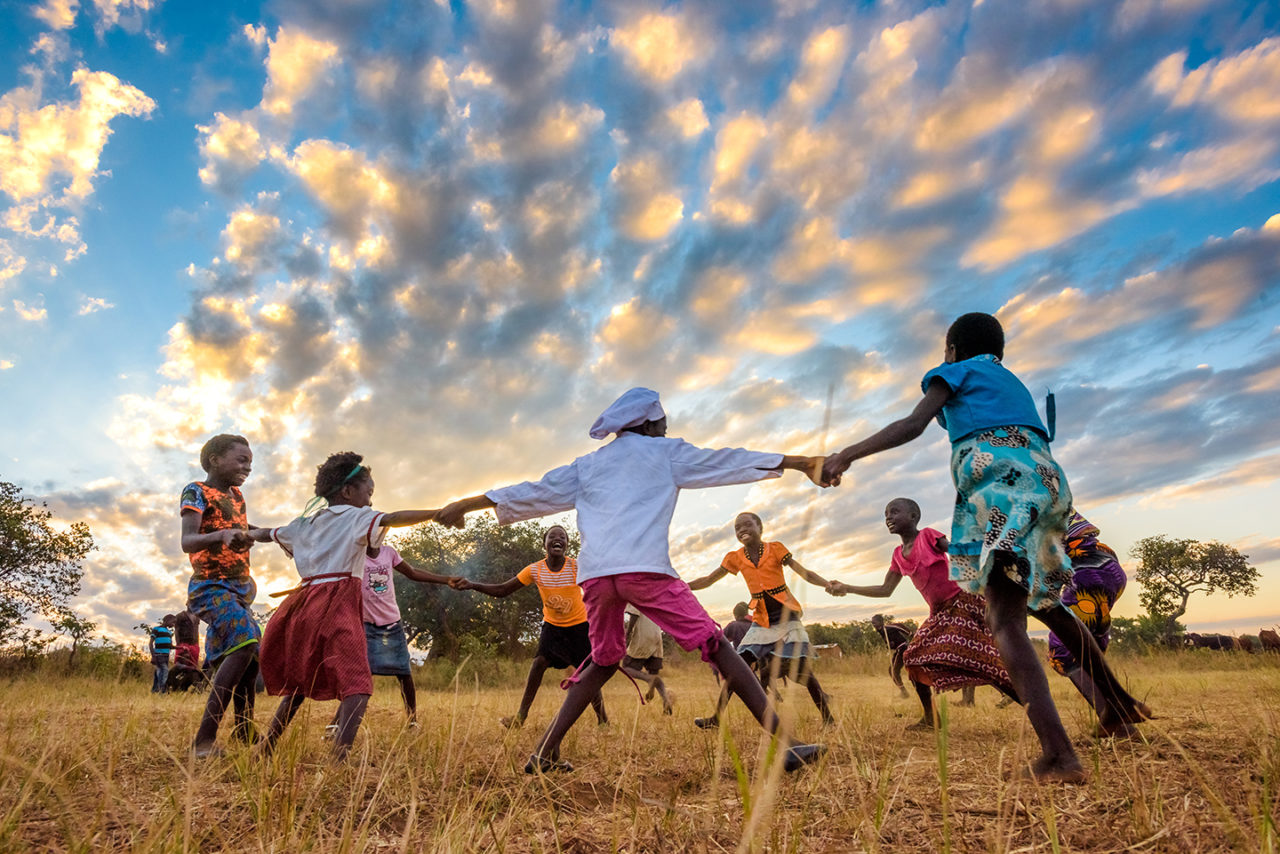
In Moyo, Zambia, the effect of an American family’s generosity was just beginning to grow. There, in 2011, a couple named Patricia and Danford received five goats through the World Vision Gift Catalog — their granddaughter Rosemary graced the cover of the winter 2016 World Vision magazine with one of those goats, which brought newfound freedom to her family.
Now 10, Rosemary isn’t growing up feeling the gnawing hunger that plagued her father from an early age. Instead, the family sold some of the goats’ offspring to buy fertilizer, which increased the yield of their garden. Now Rosemary is excelling in school and working toward her dream of becoming a chef.
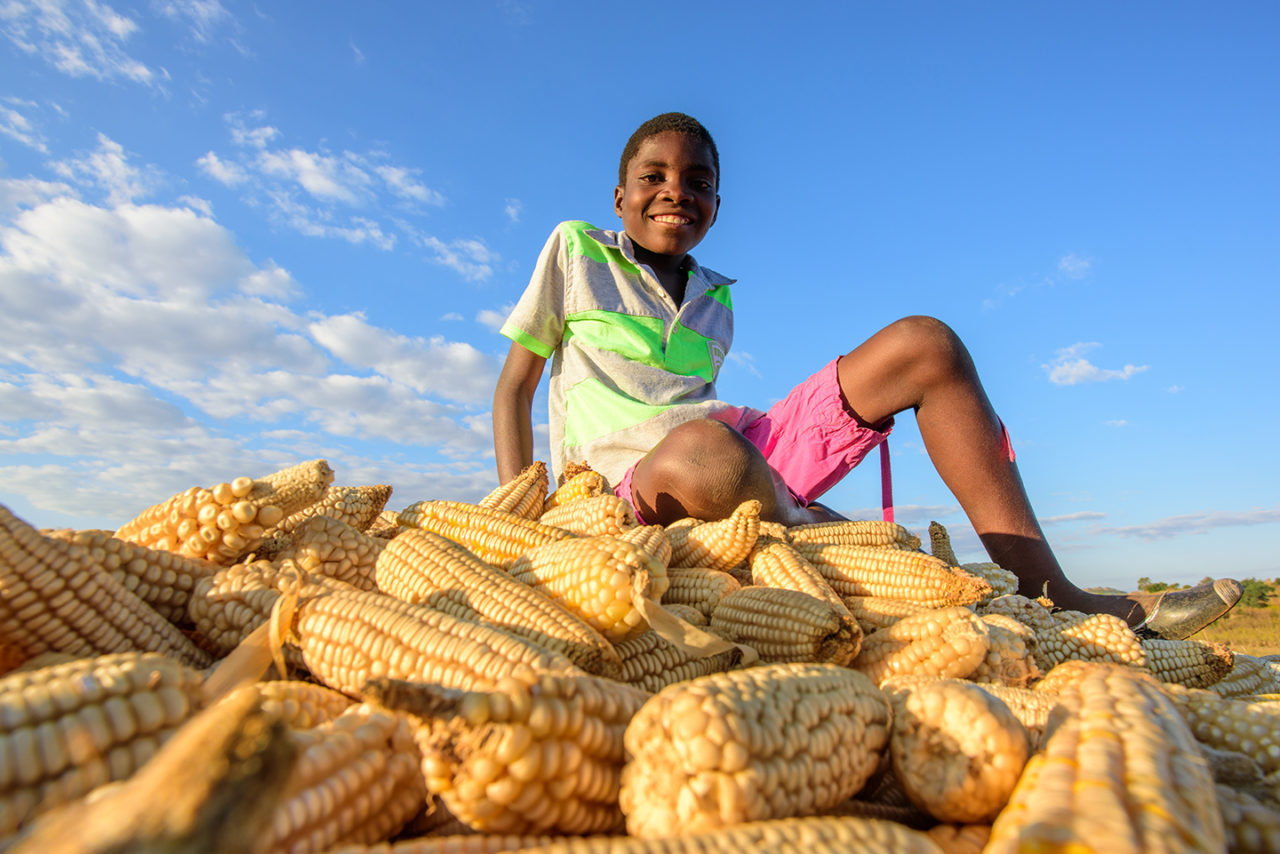
But the story still didn’t end there.
The same year Rosemary’s family received the goats, World Vision started a program to ensure that as goats multiplied, they could be shared with other families in need. It works this way: When a family enrolls and receives goats, they agree to share the same number of goats once the animals have reproduced. World Vision relies on a committee of community volunteers to ensure the program runs smoothly.
“I’m happy that my family is now living well, that we are healthy. It is exciting,” Danford says. “But most importantly, that excitement should not just end up at my household.”
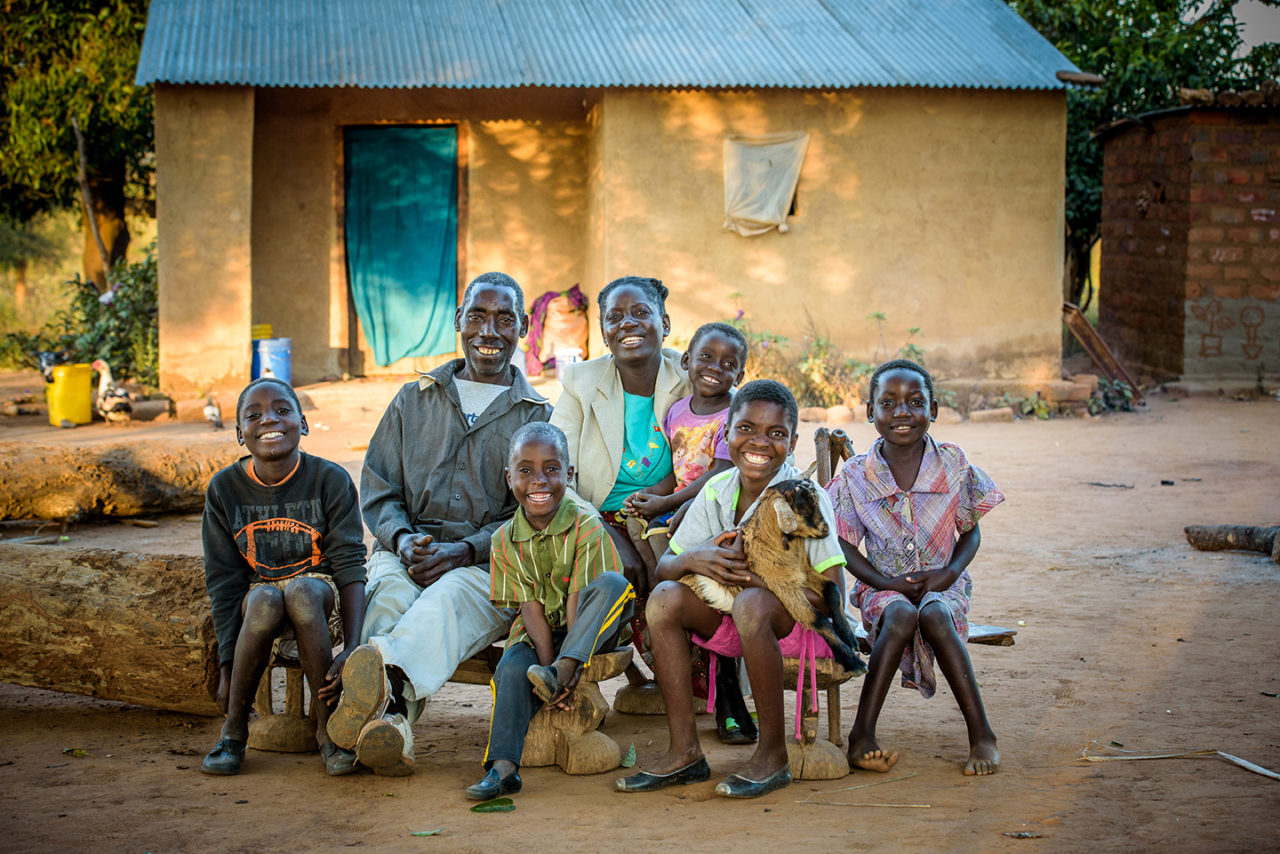
In 2015, Danford passed goats to a new group of vulnerable families, including John Nalukobo and his wife, Belita Malambo — continuing a ripple of generosity that still hasn’t finished.
Danford says, “The way we struggled is the way others also struggle. So once we [donate] the goats, we know it will ease the lives of the next family just like it has happened to us.”
The way we struggled is the way others also struggle.
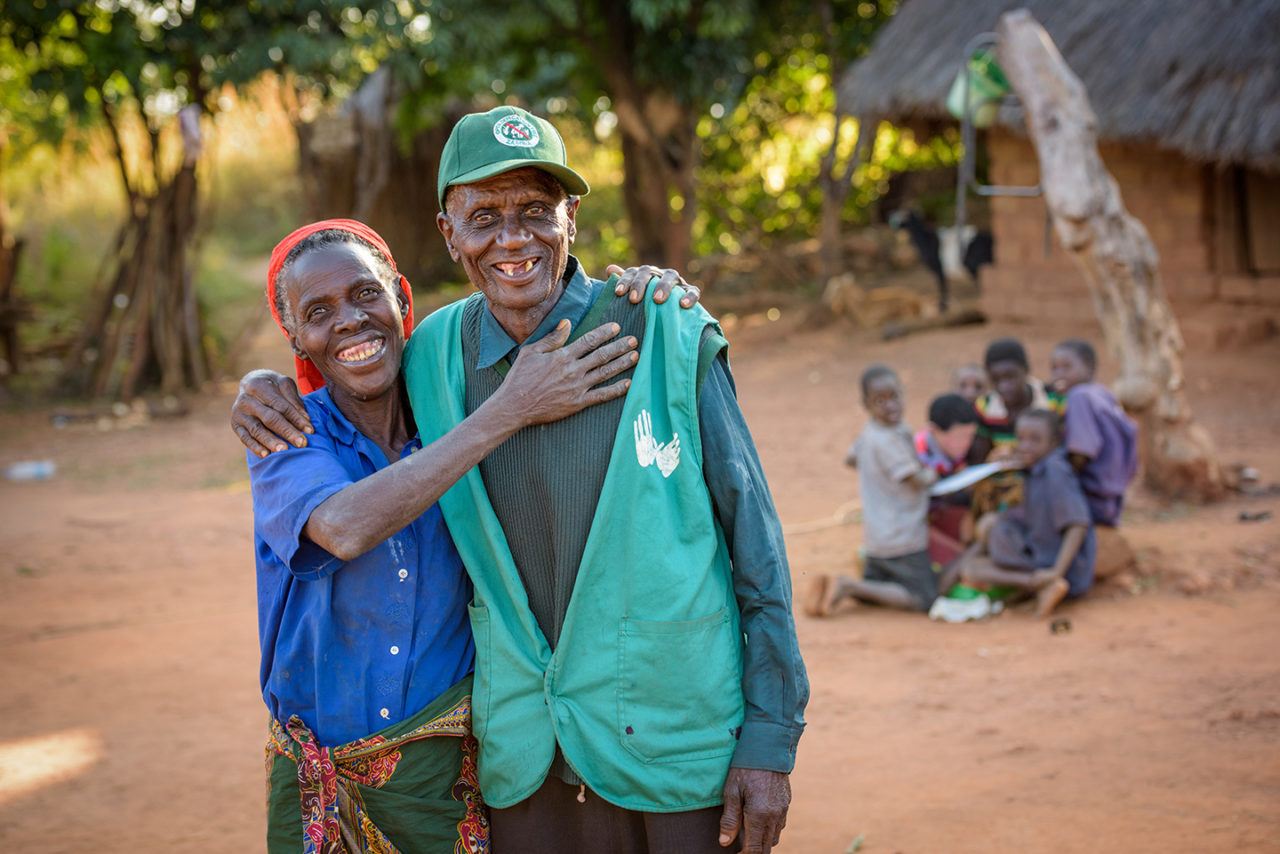
Before the goats: The struggle
For the past six years, John and Belita have been caring for seven grandchildren.
Late in life, they were dealt a harsh hand. One of their daughters died, leaving four orphaned children. Another daughter separated from her husband and had no means to provide for her children, so she went to Lusaka, the capital, to look for work and left the children with her parents. The children’s father doesn’t offer any assistance.
John is 74 and Belita is 64, so neither of them have as much energy as they used to, especially to run after young children.
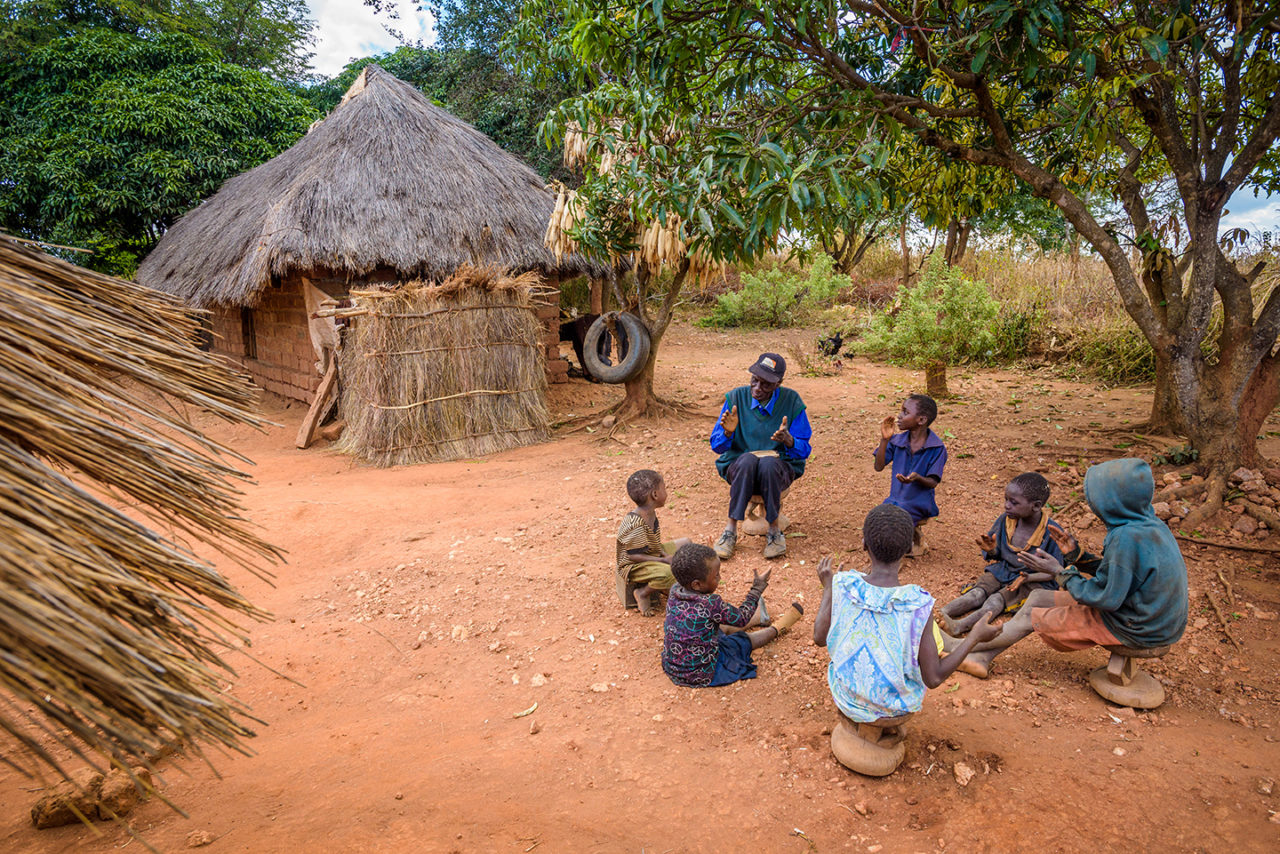
It hasn’t been easy. The grandkids would often cry for food or become listless. “Sometimes they would just stop playing,” says John. “And I would truly know that this child is very hungry.”
Arguments broke out over meals. “I want to be full,” the children would cry as they fought for every scrap. John and Belita tried to make sure their grandchildren had food and would themselves go without. But they also needed to keep up their strength for farming.
Sometimes the only food available was nshima — a polenta-like Zambian staple made from corn. Other times they supplemented with a meager selection of cabbage or onions from their garden.
“I used to feel very bad knowing that I was unable to provide for my grandchildren,” John says. “And sometimes I would feel embarrassed because I would look everywhere and could not find anything to give to my grandchildren that would sustain their stomachs.”
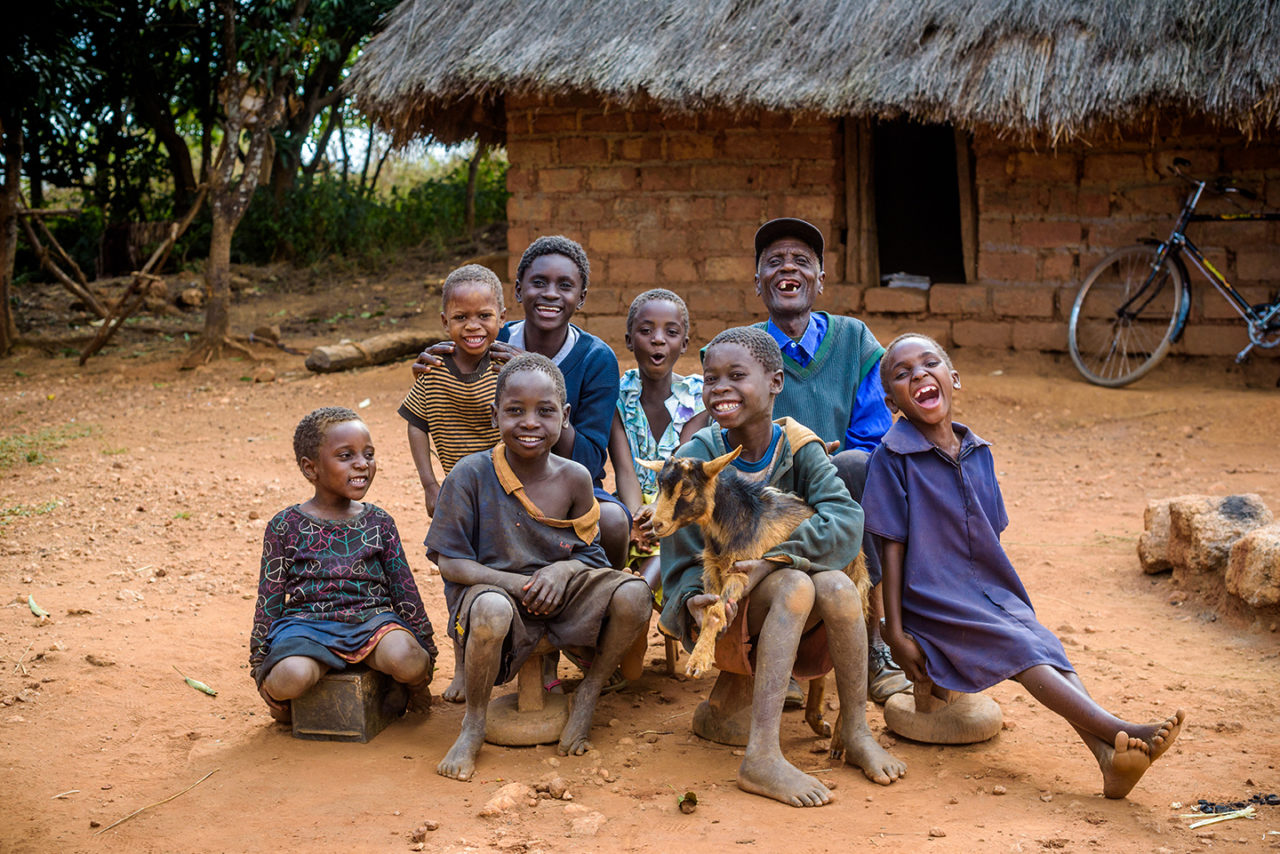
When there was nothing else, they would go into the bush and scrounge for tubers, which could be bitter or even harmful if not cooked correctly. “That’s how the day would pass, and we would look to another day,” he says.
John grew a few vegetables and bananas in their garden, and sometimes he had extra harvest to sell—their only income. But he says, “I couldn’t manage to take care of my family only selling vegetables and bananas.”
I couldn’t manage to take care of my family only selling vegetables and bananas.
Besides feeding the grandchildren, he faced regular payments on their school fees, uniforms, and school supplies; that’s a big bill with five children in school. He often missed payments, and if he missed too many, the children were no longer welcome in class. Missing school meant missing a chance at a better life.
Sponsorship provides a strong foundation
In 2011, World Vision started sponsorship in the Moyo area, and things began improving. Families in the U.S. sponsored three of John’s grandchildren: Kizwell, Tesha, and Reward. Another of his grandsons, Nature, is registered and available to be sponsored.
John also joined the village hygiene committee in 2012 and learned many ways to improve his family’s health. Now they dry their dishes on an elevated drying rack. They have a pit latrine, a hand-washing station, and a designated hole for garbage.
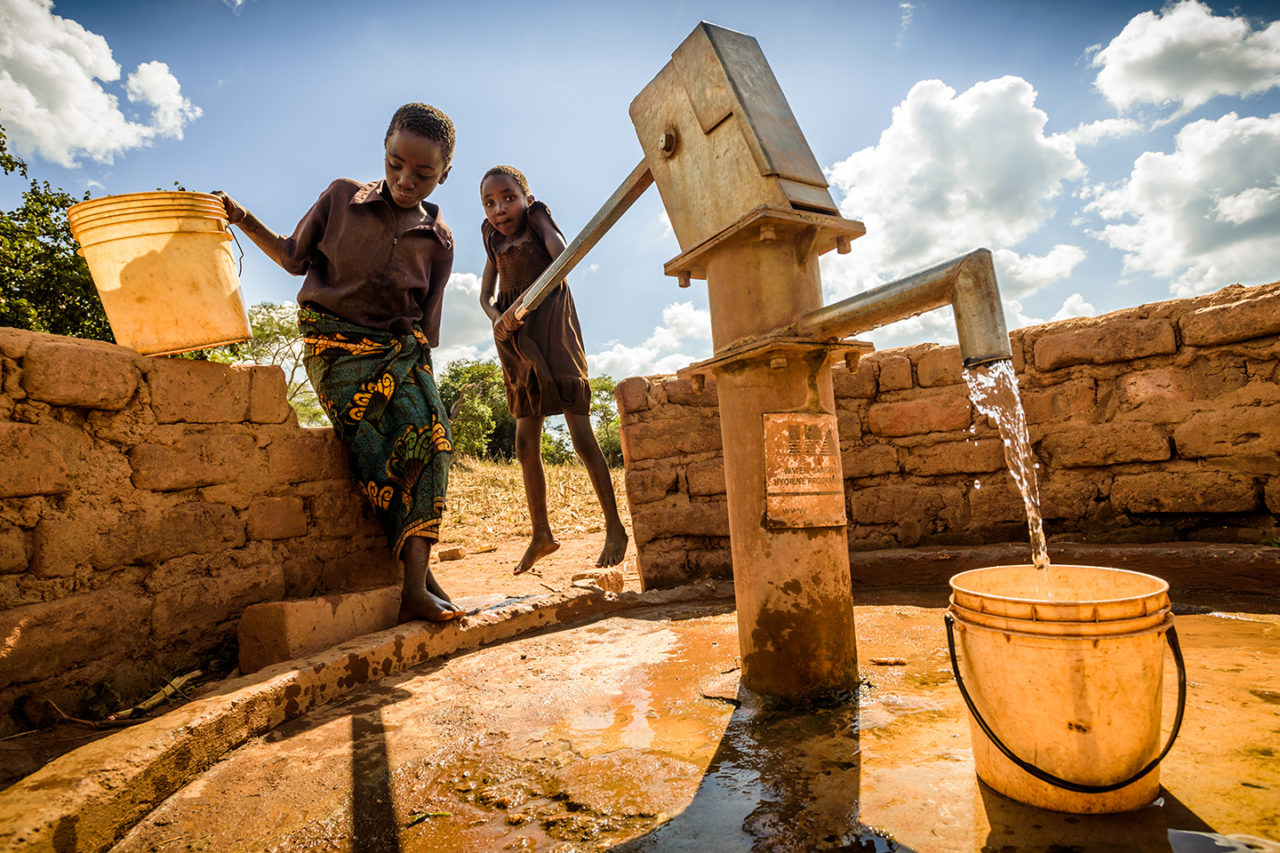
John appreciates all that sponsorship has meant for his grandchildren, himself, and his neighbors. Child sponsorship forms a foundation for the good work from which the entire community benefits.
Kizwell’s sponsor sent a Special Gift, which the family used to buy shoes, clothes, and a school bag and to pay school fees. They also received two bicycles, one of which Tesha rides to school. John rides the other to the hospital, where he’s a committee member in charge of caring for the hospital’s physical surroundings.
Goats provide a new outlook
Despite all the improvements, John longed for something that would allow him more control over his own destiny. In 2015, a member of the program committee contacted John’s family saying that five goats were on the way.
After receiving that news, I was not calm. I was so excited.
“After receiving that news, I was not calm. I was so excited. I really wanted the goats,” John says. “I knew my problems would be lessened. The goats are kind of like a savings account. If I take very good care of them, they reproduce, so that means more money.”
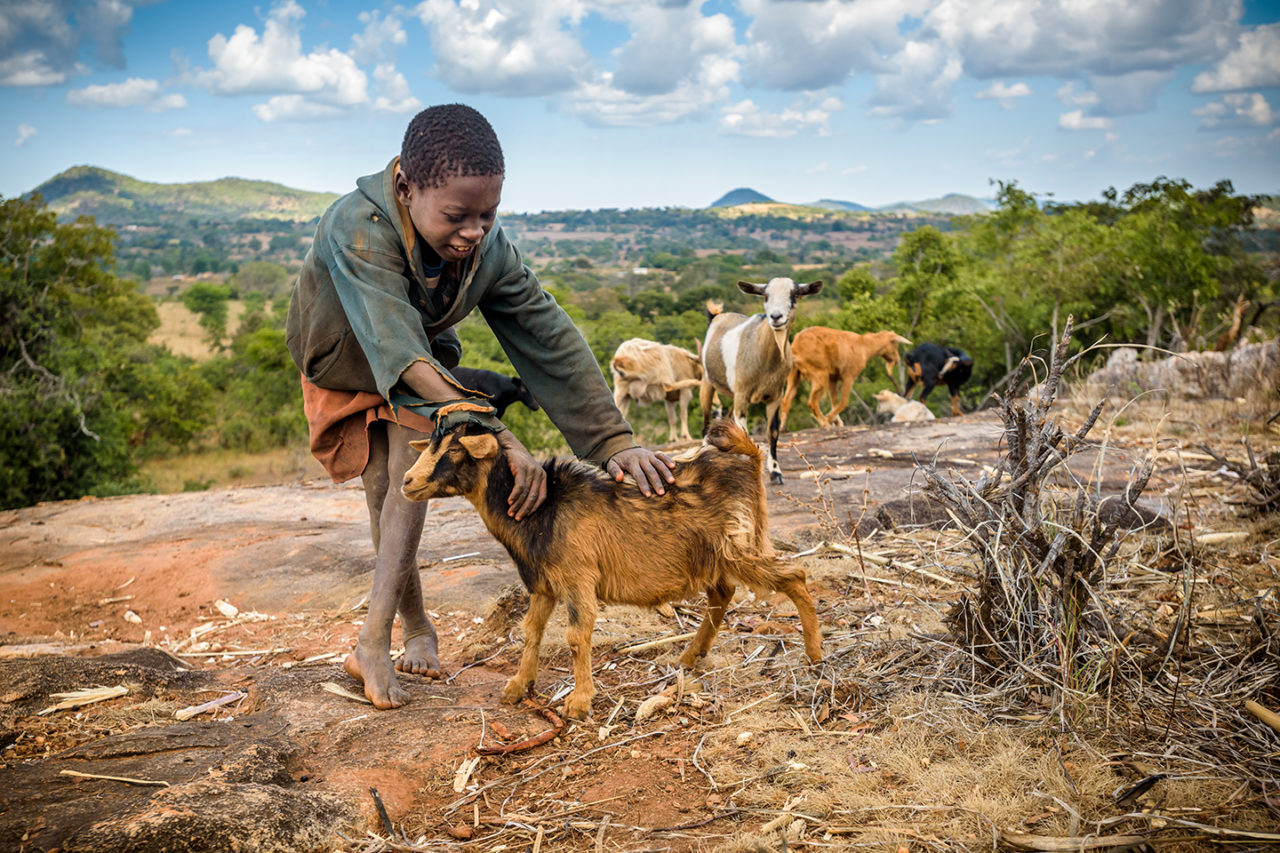
That “savings account” has already yielded dividends. As the goats reproduced, John sold some animals to raise money for school costs. “I may delay [payment] a bit, but I can’t compare it to how it was before,” he says.
He also expanded his garden from 500 plants to 1,000 by buying fertilizer and renting a plow. For the first time, he grew corn because he could afford to pay people to work the land alongside him and his wife.
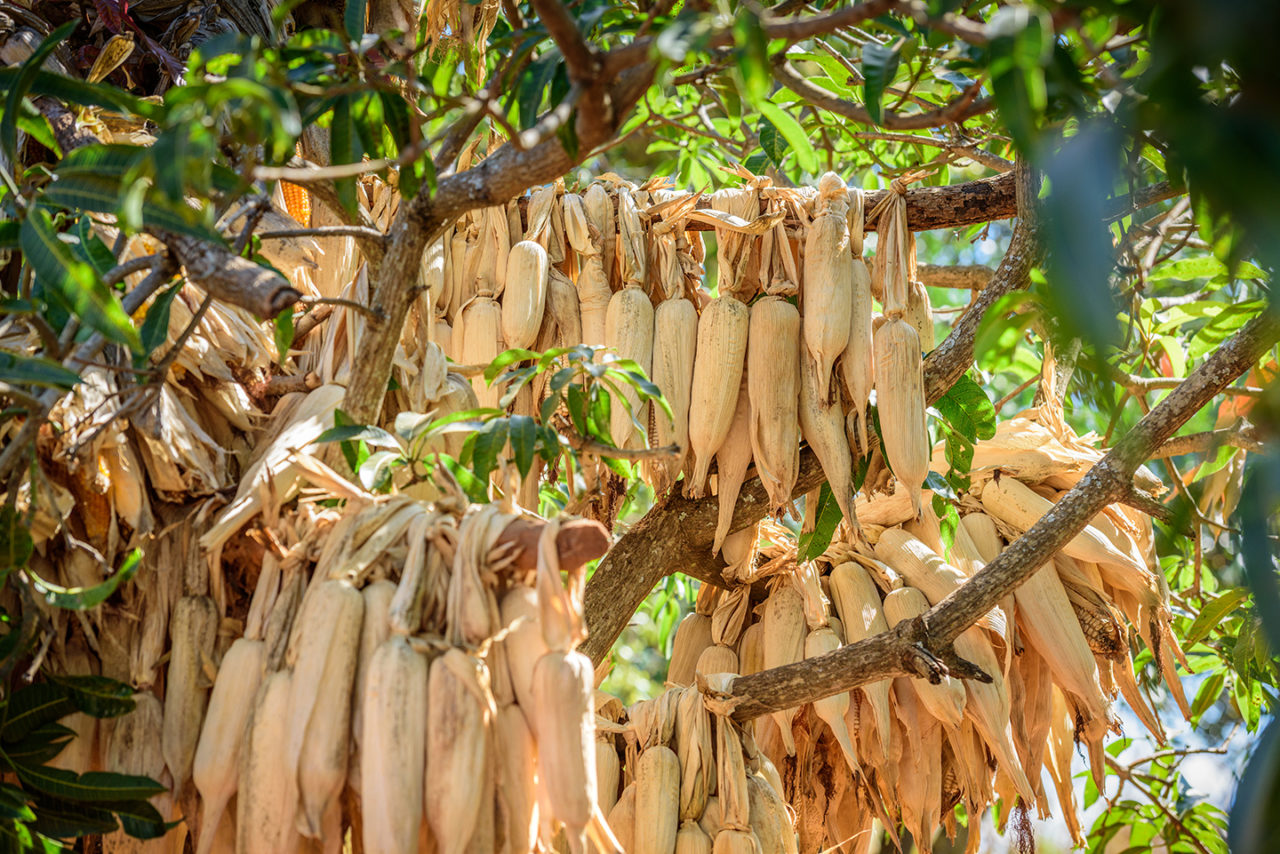
John’s not finished yet. He hopes that as his goats multiply, he’ll earn enough to buy a cow. That means easier plowing and greater crop yields. He’ll need 12 goats for that purchase, and he has nine now.
Belita joined one of World Vision’s new savings groups in March 2017. She’s managed to save 40 kwacha, or US$4.50, so far. They’ve never had this amount of money in their savings. Before, any money went to immediate needs.
John focuses on the good things he now has thanks to sponsorship and the goats. He believes the multiplying animals will enable his grandchildren to finish school and achieve their dreams.
A heart of generosity
John believes the people who donated goats have good hearts. “I would tell them that I am very grateful for what they have done — for the goats they have donated to me — because they have helped to improve my life. Where I was in the past is no longer where I am today.”
If everyone exercises generosity, the whole community will move out of poverty.
That willingness to share sits at the heart of the program. As people see that it works and keeps growing, they want to get involved too.
“If everyone exercises generosity, the whole community will move out of poverty,” says Danford, Rosemary’s grandfather. “This program has changed my thinking to continue wanting to help other people, and I’ll continue doing so, so that the next person also lives well.”
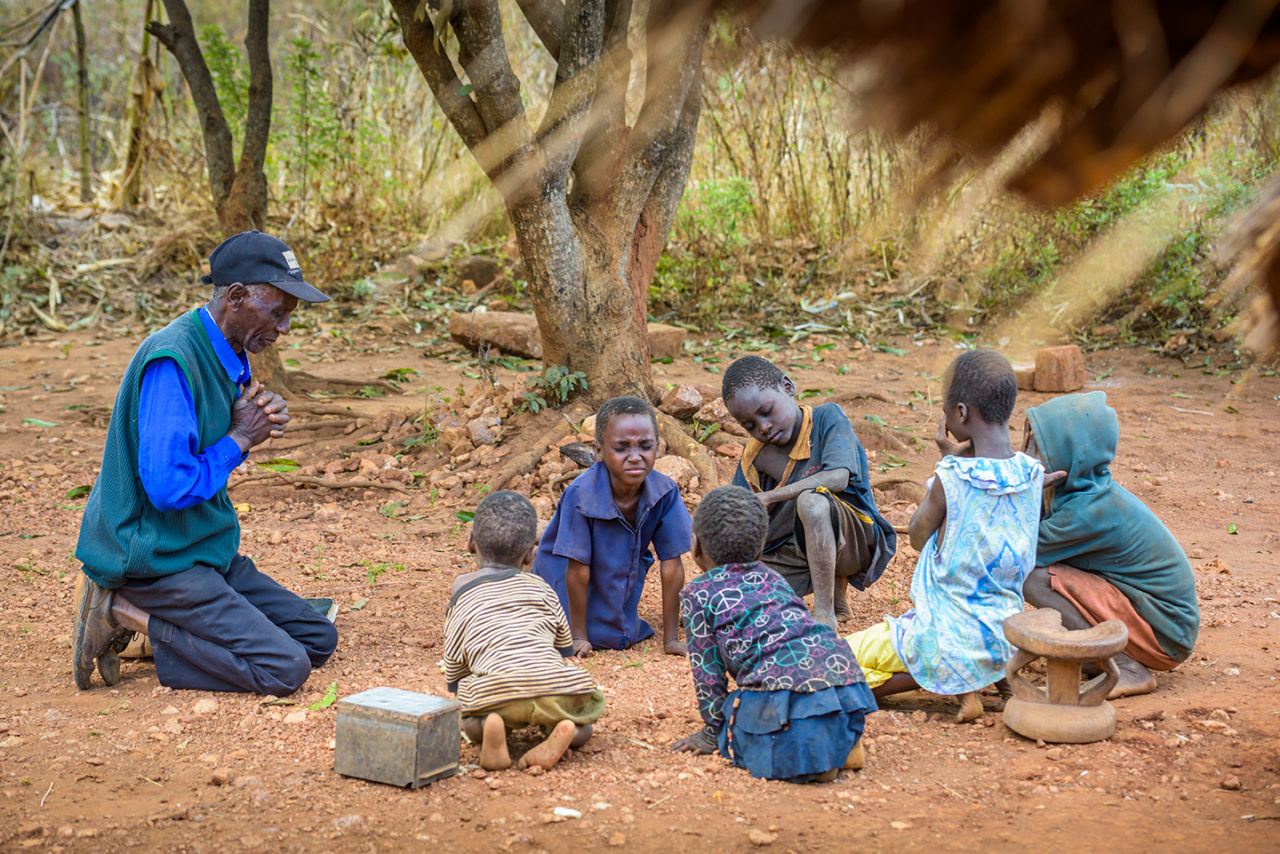
John says, “It’s very important to be generous because God himself said it in the Bible that you should love your neighbor as much as you love yourself. Therefore, it is important to share with others.”
Only a year later, in 2016, it was John’s turn to share five goats. He says, “I was really excited because I was also helped, and I needed to help another family.”
After John and other families shared goats in 2016, the program expanded into a new zone with 243 goats for families in need.
Passing on to a hungry family
High in the hills, an hour from John’s home and up a brush-covered road that is little more than a footpath, sits the new project zone.
Eunice Siamooya, 32, and her husband, 42-year-old Diyo Choobwe, live here with their six children, who range in age from 15 months to 17 years.
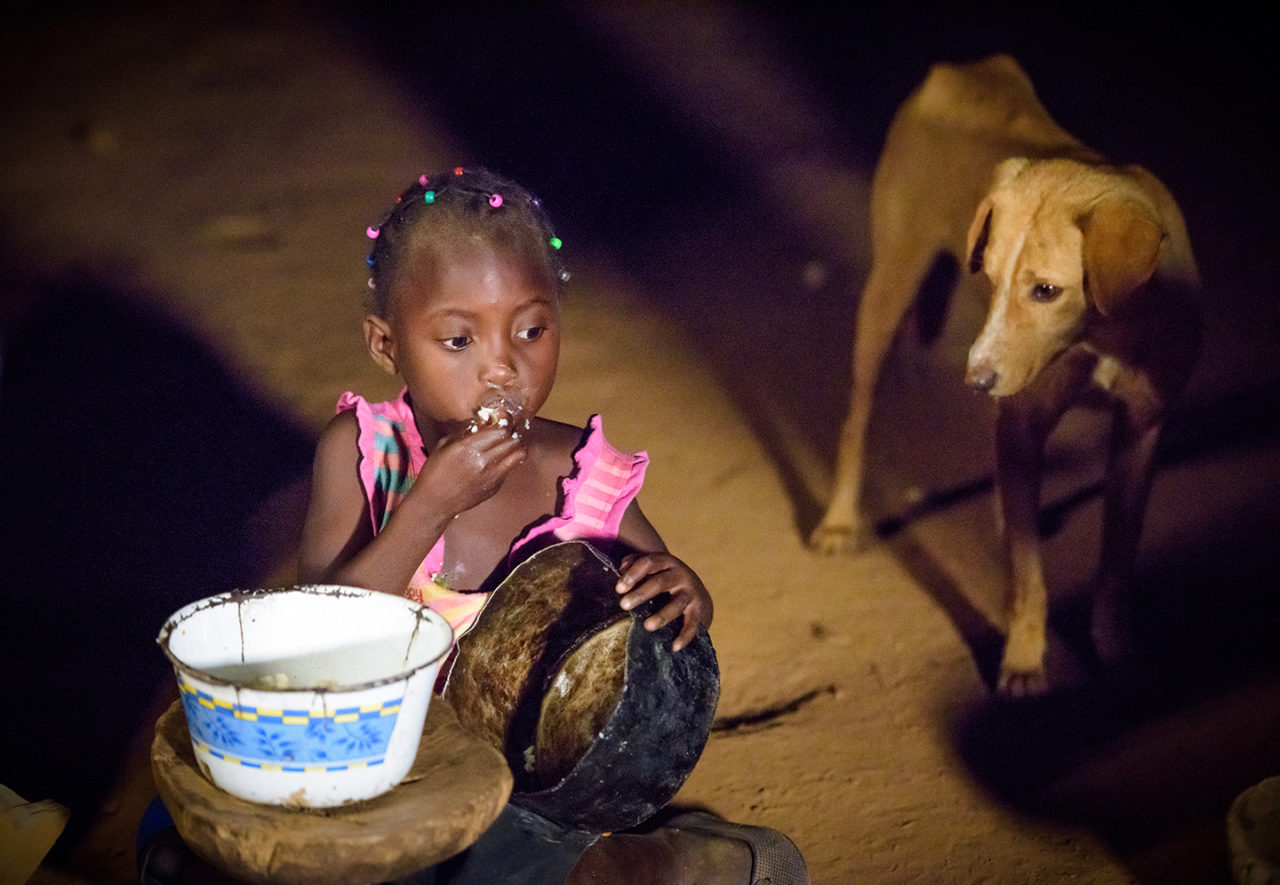
Fifteen-month-old Messiah, or Messi, cries incessantly. She suckles at Eunice’s breast, hungry. There’s not enough milk, and Eunice has no alternatives to offer.
Diyo and Eunice work as day laborers when there is work. But that’s usually only available during planting and harvesting seasons. Otherwise, they toil on their land. They have nearly 5 acres, but they can’t afford to buy good seed or fertilizer or to hire people to help clear the rocky soil.
“It all goes back to money,” says Eunice. They grow cowpeas and corn but not enough to sustain the family. Eunice says the year’s yield “will surely be finished by next month.” Their small garden holds a few underwhelming cabbages and mustard plants.
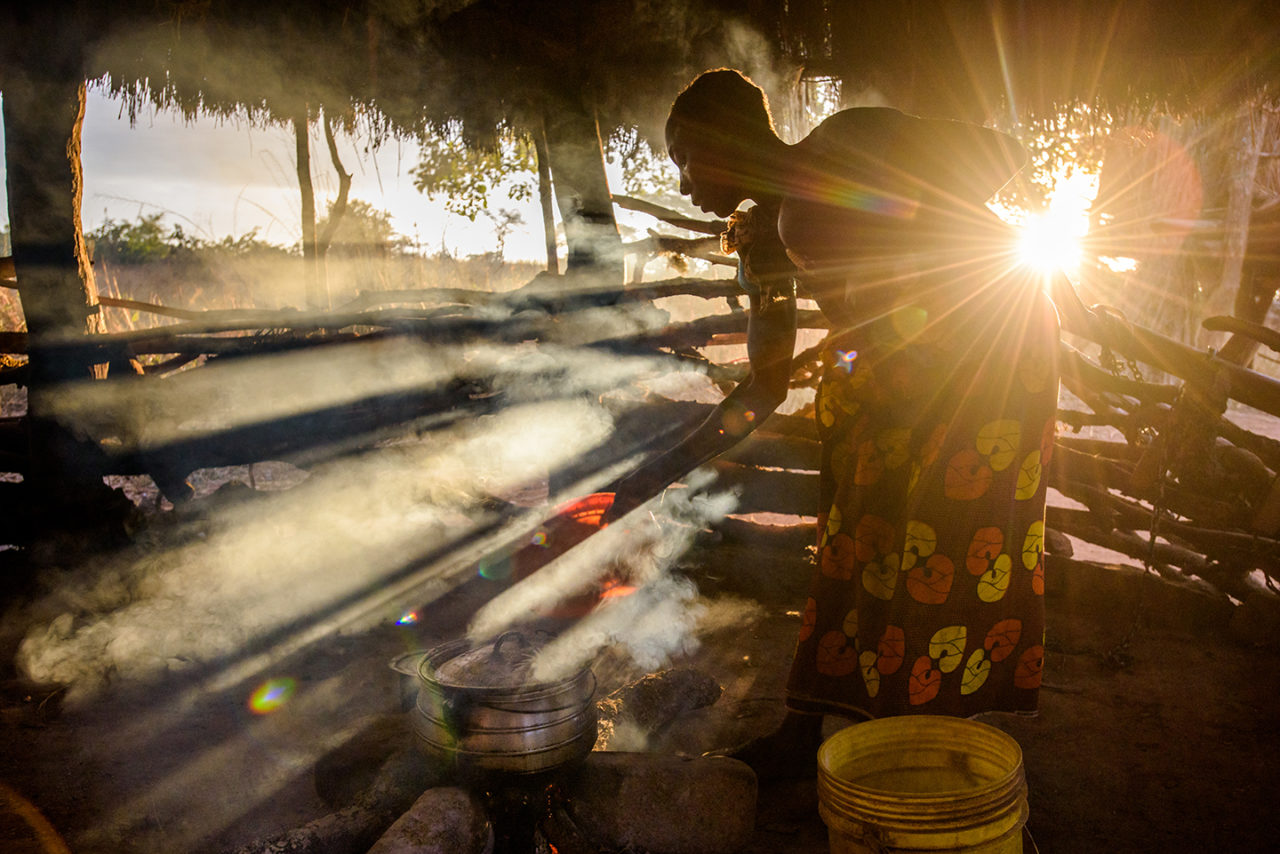
After a day laboring, Eunice returns home and begins searching for something to cook. “There have been a number of times when I get home, and I find that there is no food,” she says.
It really makes me feel bad when things are just so hard that I cannot do anything, and I see my children crying because they are so hungry.
“It really makes me feel bad when things are just so hard that I cannot do anything, and I see my children crying because they are so hungry,” says Eunice.
When they have nothing, Eunice tells her children to “sit, and when night falls, we just go to sleep.” Without food, there’s little choice.
In 2016, two events began to change their lives: Two of Eunice and Diyo’s children — 13-year-old Suzia and 12-year-old Trinity — got sponsors. Then the family received four goats in September.
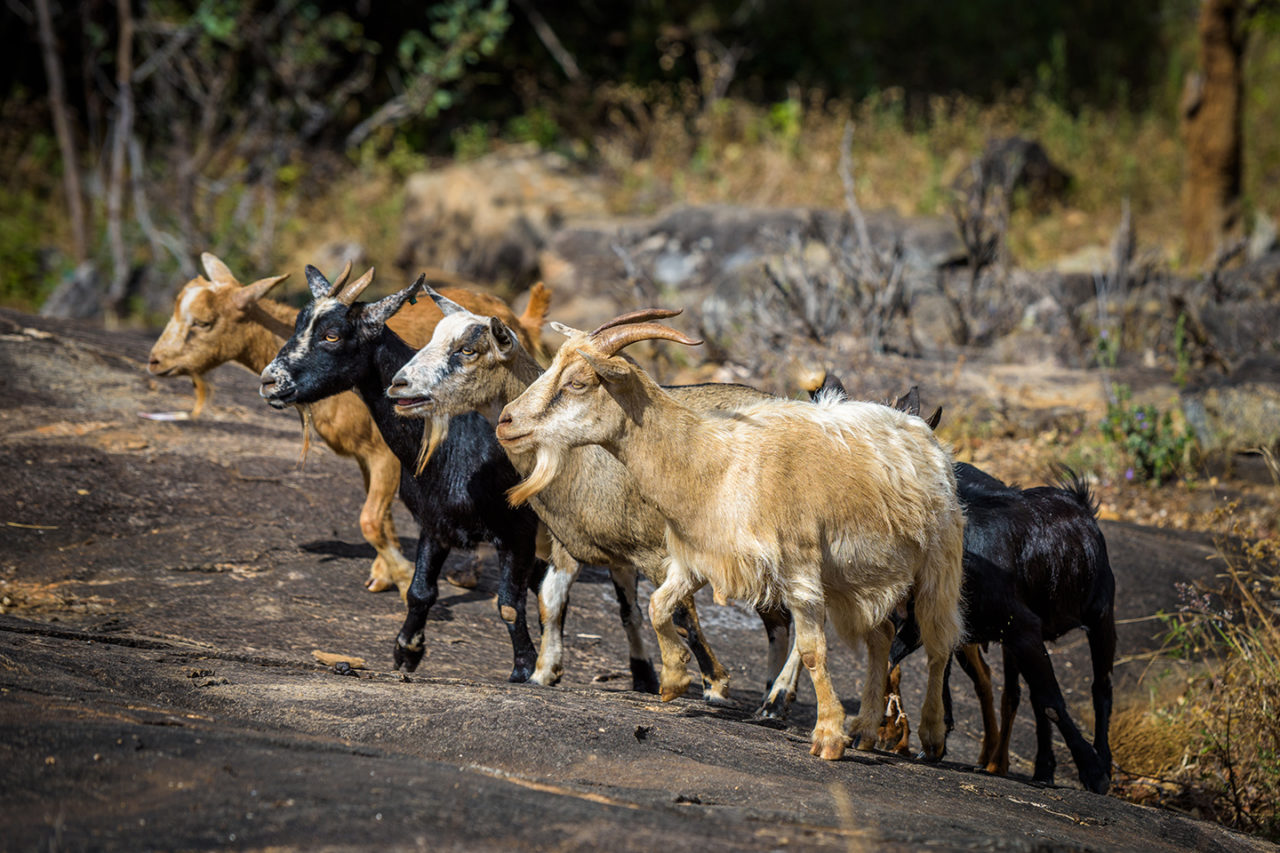
The children danced upon hearing the news. They said, “Oh, now we are going to drink some milk from the goats.”
Seven-year-old Nathan jumped up and down. “He knows that the goats will help him in the future,” says Eunice.
 Nathan is the goats’ primary caretaker. He leads them to the pastures for grazing and drinking. “He takes really good care of them,” says Eunice.
Nathan is the goats’ primary caretaker. He leads them to the pastures for grazing and drinking. “He takes really good care of them,” says Eunice.
Daring to dream
The goats are already making a difference for Diyo’s and Eunice’s family. One goat gave birth, so now they have five.
Now that they’re using goat manure as fertilizer, their garden is more fertile. And they’re seeing a noticeable difference in their corn crop as well.
Eunice feels her hopes for the future changing.
“I could see my children getting married at a tender age before the goats,” she says, because they weren’t going to have money to finish school. Her odd-job earnings weren’t going to be enough for the children to continue their studies.
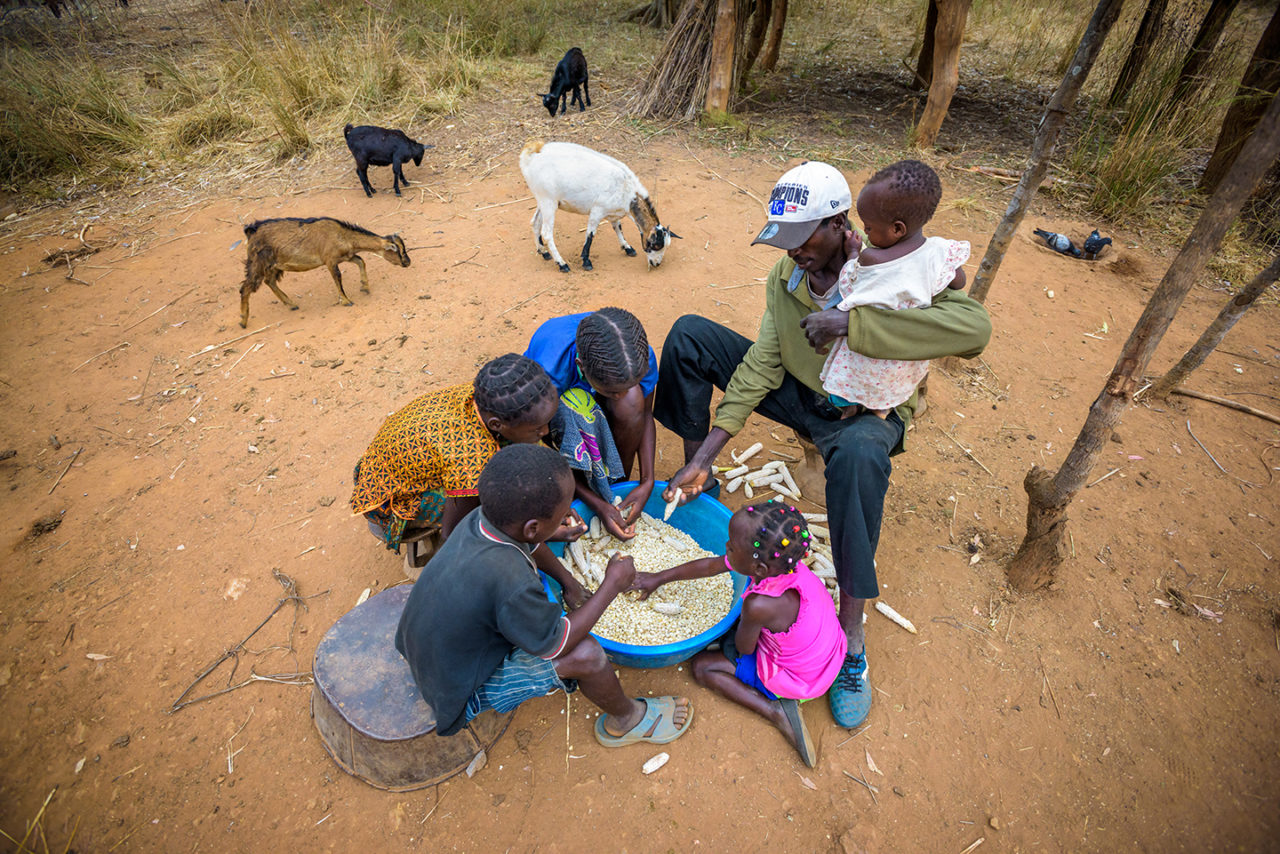
Now education no longer feels out of reach. Eunice says, “I know that my children will be better people in the future than we are. So it will be a changed generation.”
Weston Hanguandu, 27, the vice chairperson in the goat management committee for this new region, sees the program with ongoing potential to lift his community out of poverty. “It is indeed sustainable because for me, it is a seed to the farmers. It’s a gift. In fact, it’s a life gift,” says Weston. “It will be generation to generation.”
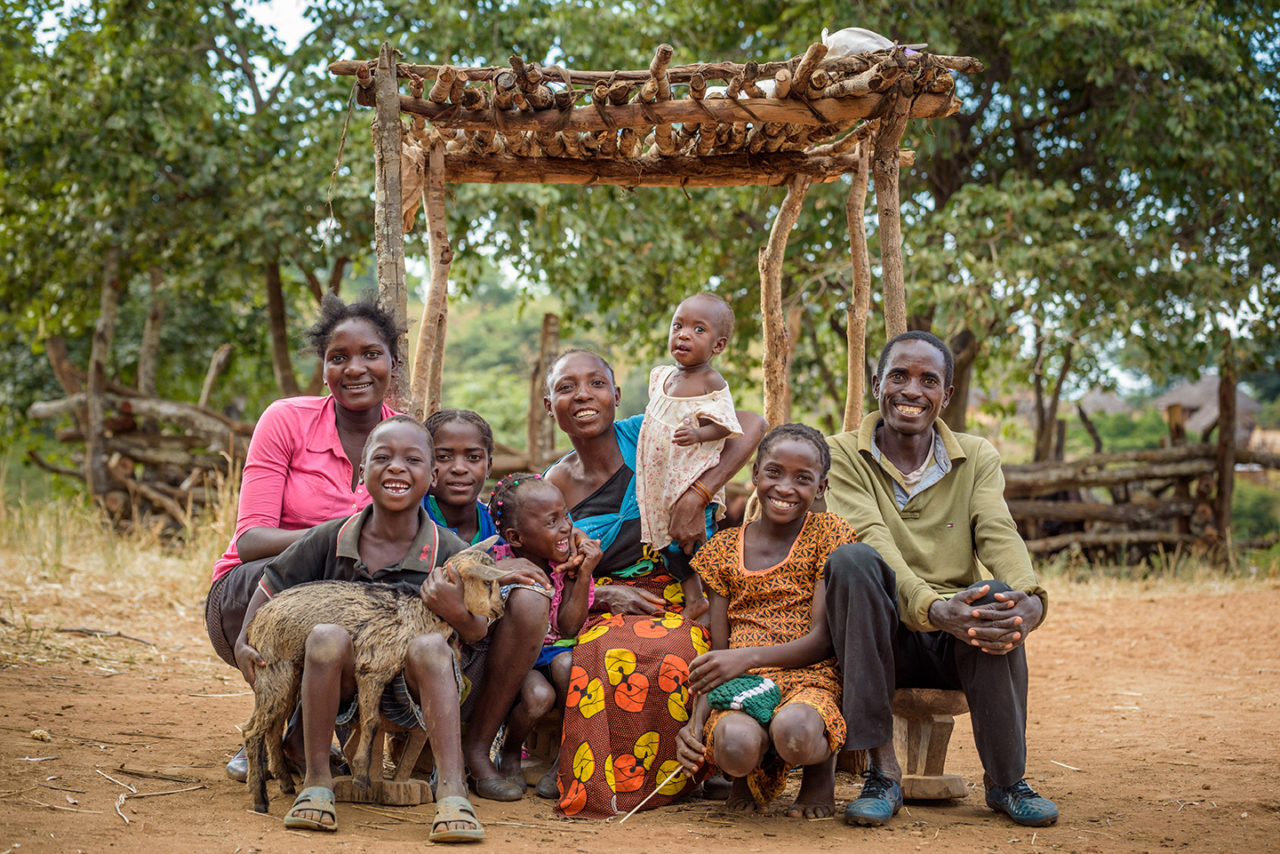
Eunice has faith that she will be able to share these opportunities with other families just as she received them. She says, “It makes me think of the goodness that’s in heaven.”
When an American family picked out a Gift Catalog goat, they probably never knew the ever-expanding impact they’d create. But that impact is rippling outward. Families all over the world can dare to dream, thanks to that simple act of generosity.
Contributors: Agatha Mali and Kwenda Paipi, World Vision staff
